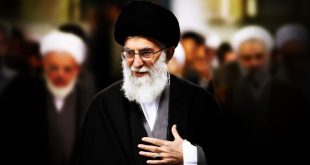Under what circumstances do Sunni and Shiʿa organisations enter into institutional cooperation with each other? This article explores this question through a study of Muslim institutional cooperation in Norway from the late 1980s to the late 2010s, based on both archival sources and qualitative interviews.
This period witnessed at first a very tight cooperation between Sunni and Shiʿa organisations, before the cooperation collapsed in the 1990s. In the 2010s Sunnis and Shiʿa again started to cooperate closely. The article seeks to interpret this development through the theory of superordinate or common goals or uniting against a third party. Sunnis seemed to invite the Shiʿa in when they had a clear common goal in the form of an external threat. Even though conditions vary, I argue that this mechanism may have played a role in the development of cooperation between Sunni and Shiʾa organisations in other countries as well.
Sunni and Shiʾa actors in European countries have sometimes been in conflict with each other but, at other times, they have cooperated and even entered into tight institutional cooperation. Why? This article explores this question through a case study of institutional cooperation between Sunni and Shiʿa organisations in Norway. The article’s main claim is that the perception of common goals or a common good can be of central importance for institutional cooperation across the Sunni–Shiʾa divide. Important actors in Sunni and Shiʿa organisations in Norway have sometimes looked at each other with suspicion – this has at least been the case on the Sunni side. But when times have called for it and they perceived a strong common interest in joining forces, they were able to put their differences aside.
This analysis is based on a longitudinal, historical study of Islamsk Råd Norge (IRN; Islamic Council of Norway), the central Islamic umbrella organisation in Norway. Sunnis and Shiʿa cooperated closely during the Rushdie affair in 1989, which served as a precursor to the founding of the IRN four years later. Following this, cooperation between Sunni and Shiʿa withered away before resurfacing in the 2010s. These developments are analysed through the lens of social identity theory, which makes the assumption that common goals and common external adversaries can make it easier for individuals and groups to put their differences aside and work together.
Bibliographic Information
Title: For the Greater Good: Common Goals and Institutional Sunni–Shiʿa Cooperation in Norway
Author(s): Olav Elgvin
Published in: Journal of Muslims in Europe 12 (2023).
Language: English
Length: 21 Pages
 Ijtihad Network Being Wise and Faithful Muslim in the Contemporary World
Ijtihad Network Being Wise and Faithful Muslim in the Contemporary World

